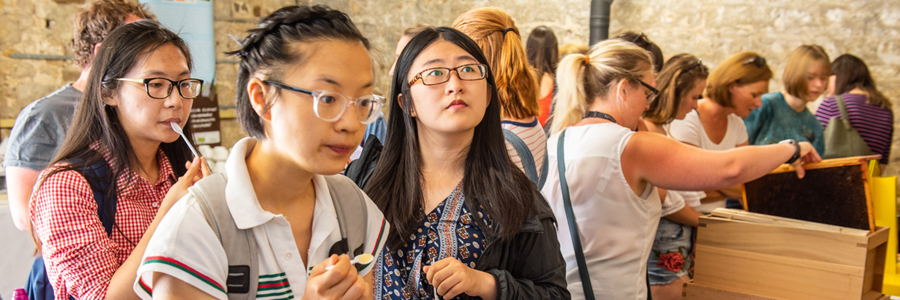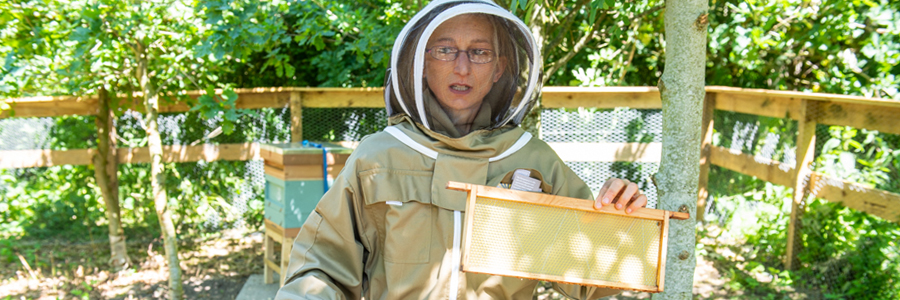Eco Hives arrive on campus

Staff and students watch bees at work and learn how they help to add flavour to our diet at the launch of the new beehives at Lancaster University’s EcoHub.
For Dr Phil Donkersley, from the Lancaster Environment Centre, the arrival of the bees on campus is the culmination of a dream.
“I originally wanted to get bees on campus in 2012, just after Darren Axe from Green Lancaster and I had managed to get chickens here,” said Phil, who was then working with Lancaster Beekeepers Association for his PhD about the diet of bees.

The project really took off with the involvement of Dr Nadia Mazza, a bee enthusiast from the Department of Maths and Statistics. In June Lancaster University Beekeepers welcomed the first three bee colonies, supplied by The Bee Centre.
“Pollination is an incredibly important eco system service provided by insects,” Phil told visitors at the launch event to celebrate the bees’ arrival.
“While carbohydrate crops such as wheat are pollinated by wind, our fruit and vegetables are pollinated by insects: so without them we’d lose all the spice of life.”
Phil explained how bees in the UK are facing a variety of threats, from pesticides, disease, climate change and habitat loss.
“I’m very interested in what bees forage on. In Lancashire we are quite lucky with all our woodlands and hedgerows and a lot of remaining natural habitat.

“Lancaster University has been very good at increasing wild flower planting attracting bumblebees, solitary bees and other pollinators. I’d like to get policy makers and representatives of other universities on campus to see what we have done here, and to encourage more conservation effort nationally.
Phil is also excited by the research possibilities of having hives on campus, giving him quick and easy access to bees for his experiments. He’s hoping to get a student involved in a project to look at tree mixes that could provide food for bees for a whole season.
Beekeepers, Richard and Linda Wilson from Overton brought a glass fronted hive to the Eco Hub for the launch, so visitors could see the inside workings of a colony. Visitors also got the opportunity to contribute to a Telling the Bees exhibition, a collaboration between storytellers and the Lancaster University Infolab.
Back to News
